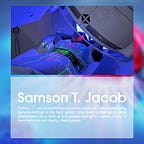What are some new findings in liver cancer research?
There is always a lot of research in the field of liver cancer. Researchers are working to find ways to prevent the disease and improve treatments.
A new drug called NMS-01940153E that inhibits a key enzyme effectively treats patients with advanced liver cancer who have tried other medicines but have not been successful. It also works well in combination with other drugs.
For patients with advanced hepatocellular carcinoma (HCC), a hazardous form of liver cancer that can’t be surgically removed, two drugs may be used to improve survival. They’re a combination of atezolizumab and bevacizumab, which work by blocking blood vessel growth in tumors.
These drugs may be used as a treatment before, after, or in conjunction with radiation therapy. Researchers are also testing a newer treatment that uses a virus, JX-594, to infect liver cancer cells and cause them to die or make proteins that trigger the body’s immune system to attack them.
In addition to these treatments, experts at Siteman Cancer Center are constantly developing and applying newer radiation techniques to target tumors with less damage to normal tissue. This enables our doctors to deliver radiation more precisely, sparing healthy tissues and improving your chances of a successful outcome.
Some newly available blood tests are designed to help diagnose liver cancer. These tests look for proteins that cancer cells produce, which can help determine whether a tumor is malignant.
They also check for changes in a blood chemistry test that measures enzymes in the liver. Elevations in alanine aminotransferase (ALT), aspartate aminotransferase (AST), and bilirubin can indicate liver damage.
A team led by researchers from Johns Hopkins University has developed a blood test called DNA evaluation of fragments for early interception (DELFI). DELFI uses artificial intelligence and machine learning to analyze DNA fragments shed from cancer cells into the bloodstream.
Doctors may use ablation therapies for people with liver cancers that are too large for surgery. These treatments can destroy cancer cells while sparing healthy tissue. They are also used to treat liver metastases and reduce the risk of cancer recurrence in people who have undergone surgery to remove their tumors.
RFA is a method of local ablative therapy that uses radiofrequency energy to create an alternating electric field within the target tissue. This creates ionic agitation that leads to heat, which destroys the cells.
Microwave ablation (MWA) is another local ablative technique that uses microwave energy to create an alternating electrical field within the tumor. The same ionic agitation occurs as RFA, but the temperature is higher and does not cause carbonization and charring of adjacent tissues.
Some new findings in liver cancer research can help doctors determine if your cancer will return, even weeks or years after treatment. The new tests look for small amounts of cancer cells, a minimal residual disease or MRD, that can stay circulating in the blood.
These tests are more sensitive than standard imaging tests. That means they can find recurrences before you have symptoms.
They also can tell if your liver is still working well, so your healthcare provider will know what to do next.
The most common types of liver cancer are hepatocellular carcinoma and intrahepatic cholangiocarcinoma. These are cancers that start in your liver or bile ducts.
Doctors are trying to make more liver cancers resectable by using different types of neoadjuvant therapies (therapies given before surgery). These include chemotherapy, radiation therapy, ablation, embolization, and other treatments that destroy tumor cells. Early results are promising but must be confirmed in more extensive studies before these treatments are widely used.
Another new finding in liver cancer research is to learn how to predict if a tumor will come back after surgery. This may be done by testing a patient’s liver cells through genetic profiling. This will help doctors identify people needing additional treatment after a partial hepatectomy. These tests can be expensive, but they are essential for preventing recurrence. They also help doctors and patients plan for treatment and follow-up care.
